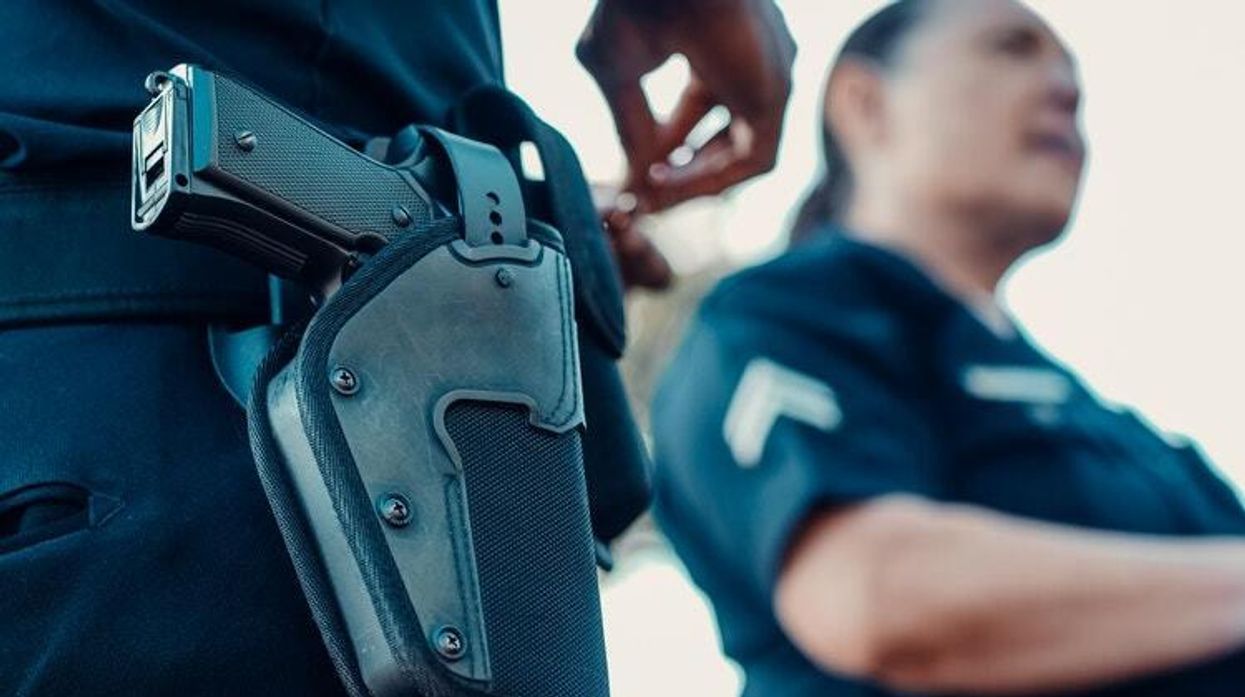The New York Times has editorialized against New York City Pride organizers' decision to limit police presence at events, but many readers are not having it.
Heritage of Pride, which runs NYC Pride, announced a few days ago that police and corrections officers could not march as groups in the parade until at least 2025 and that it would rely on trained private security, volunteers, and community leaders to keep the peace at events. The New York Police Department "will provide first response and security only when absolutely necessary as mandated by city officials," and officers will be kept "at least one city block away from event perimeter areas where possible," Heritage of Pride announced.
The group is taking these steps because "the sense of safety that law enforcement is meant to provide can instead be threatening, and at times dangerous, to those in our community who are most often targeted with excessive force and/or without reason," especially people of color and transgender people, its release stated. The move comes after a year that saw numerous protests against police brutality, particularly against Black Americans; George Floyd, Breonna Taylor, and others were killed by police.
The Times editorial, published Tuesday, called Heritage of Pride's action "a misstep." "Barring L.G.B.T.Q. officers from marching is a politicized response and is hardly worthy of the important pursuit of justice for those persecuted by the police," the Times wrote. "The organizers are certainly within their rights to reduce the number of armed police officers providing security, but let's be honest: It's a poke in the eye at law enforcement more than a meaningful action to address police violence or foster a dialogue about law enforcement reform. These moves do nothing to celebrate and demonstrate solidarity within the L.G.B.T.Q. community."
The editorial quoted NYPD Sgt. Ana Arboleda, a member of Gay Officers Action League, as saying, "Being banished for celebrating a part of my identity is not easy for me. Instead of being embraced, they're throwing me back in the closet."
The piece acknowledged that Pride events began as a commemoration of LGBTQ+ people's 1969 uprising against police harassment at the Stonewall Inn and that the community has continued to have complaints about police, with participants in the Queer Liberation March reporting they were pepper-sprayed by law enforcement last year.
But some commentators thought the Times editorial tone-deaf. It takes too long to note the origins of Pride and minimizes the amount of harassment that led to the Stonewall riots, J. Bryan Lowder wrote in Slate. It also fails to recognize how much of a threat police pose particularly to marginalized segments of the LGBTQ population, such as "trans women of color or queer youth experiencing homelessness," he said.
By calling Heritage of Pride's move "politicized," the Times misses a key point, he added. "Here we have the crux of the misunderstanding: The Times editorial board believes that banning queer cops from marching in uniform is political, that tying police violence to actual police is a politicized move detached from the harm that actual victims have endured," Lowder wrote. He went on to note that for some participants, Pride is simply a celebration, "but for others, Pride is meaningless without politics."
Several people weighed in on Twitter as well.




































































Charlie Kirk DID say stoning gay people was the 'perfect law' — and these other heinous quotes